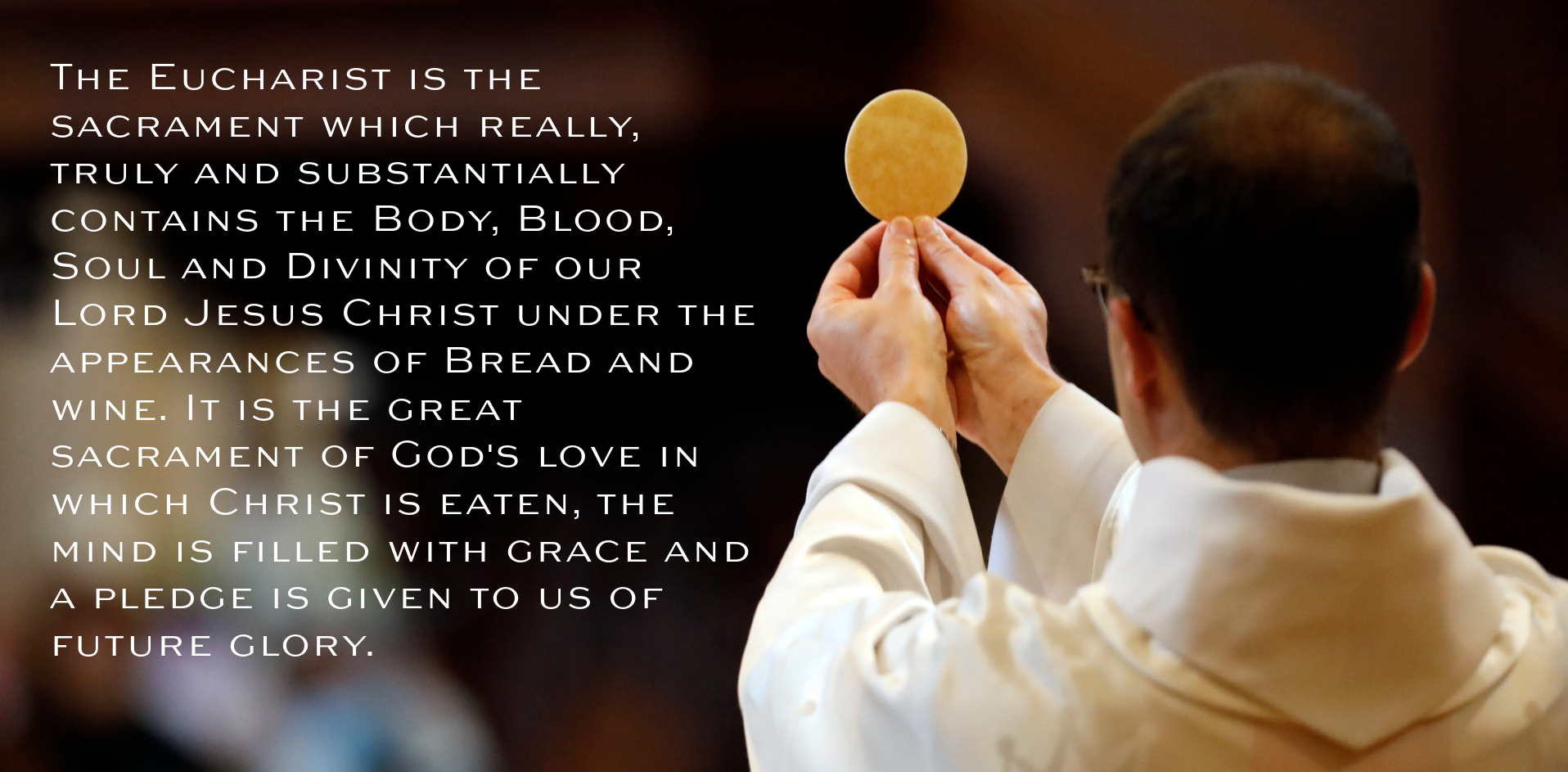Holy Eucharist
When Mass is being celebrated, the sanctuary is filled with countless angels, who adore the Divine Victim immolated on the altar -- St. John Chrysostom
What is the Eucharist?
The Eucharist stands at the center of the Catholic Church as the highest form of worship that the human person can offer. It is Christ's incarnation continued in space and time. The other sacraments and all the Church's ministries and apostolates are directed toward the Eucharist.

The Eucharist in the Scriptures
Christ instituted the sacrament of the Eucharist at the Last Supper on the night before He died on the cross: "Jesus took some bread and when He had said the blessing He broke it and gave it to the disciples. 'Take it and eat,' He said, 'this is my body.' Then He took a cup and when He had returned thanks He gave it to them. 'Drink all of you from this,' He said, 'for this is my blood'" (Matthew 26:26-28).
The Bread of Life (John 6:53-58)
Very truly, I tell you, unless you eat the flesh of the Son of Man and drink his blood, you have no life in you. Those who eat my flesh and drink my blood have eternal life, and I will raise them up on the last day; for my flesh is true food and my blood is true drink. Those who eat my flesh and drink my blood abide in me, and I in them. Just as the living Father sent me, and I live because of the Father, so whoever eats me will live because of me. This is the bread that came down from heaven, not like that which your ancestors ate, and they died. But the one who eats this bread will live forever.
Spiritual Food for the Christian Journey
Like Baptism, the Eucharist is necessary for salvation to be received either sacramentally or in desire. Christ's words, "if you do not eat the flesh of the Son of Man and drink His blood, you will not have life in you" (John 6:53), means that Holy Communion is necessary to sustain the life of grace in a person who has reached the age of reason. Those who, through no fault of their own, do not realize this can receive the necessary grace to remain in God's friendship through other means. This is similar to what happens with the baptism of desire to first receive the state of grace.
All Other Sacraments Directed Toward the Eucharist
The Eucharist is the most excellent of all the sacraments because it contains Christ Himself. All the other sacraments are channels of grace but they do not actually possess Jesus Christ, the Author of Grace. Moreover, the other sacraments point to the Eucharist as their purpose or end. Baptism enables us to receive the Eucharist; Confirmation perfects the Christian so that his faith in the Eucharist may remain strong; Penance and Anointing of the Sick cleanse the soul from weakness and sin and prepare it for the reception of the Eucharist; Holy Orders ordains the priests necessary to consecrate and offer the Eucharist; and Matrimony is the earthly sign of the purpose of the Eucharist, to unite the faithful with Christ in selfless love.
Eucharistic Adoration
We should worship Jesus in the Tabernacle because He is present there under the appearance of bread and wine as truly as He is in heaven. We should give Him the adoration given to God alone because of His infinite perfection and His supreme domination over all things created. The Church fosters devotion to the Real Presence through public adoration of the Holy Eucharist, notably exposition of the Blessed Sacrament, Benediction and Forty Hours Devotion.



